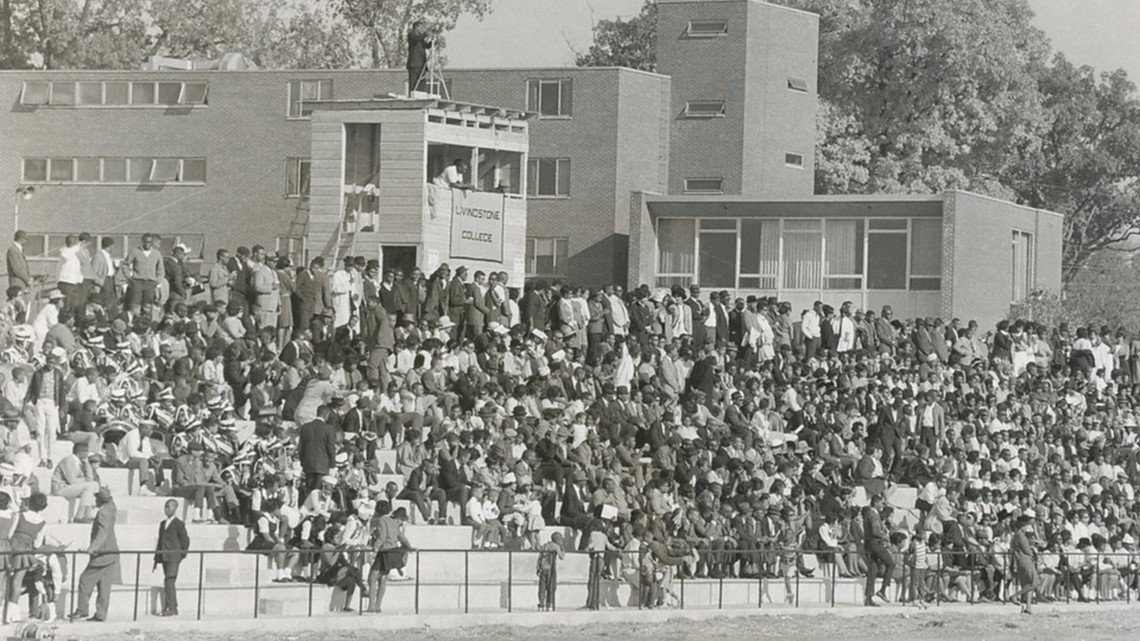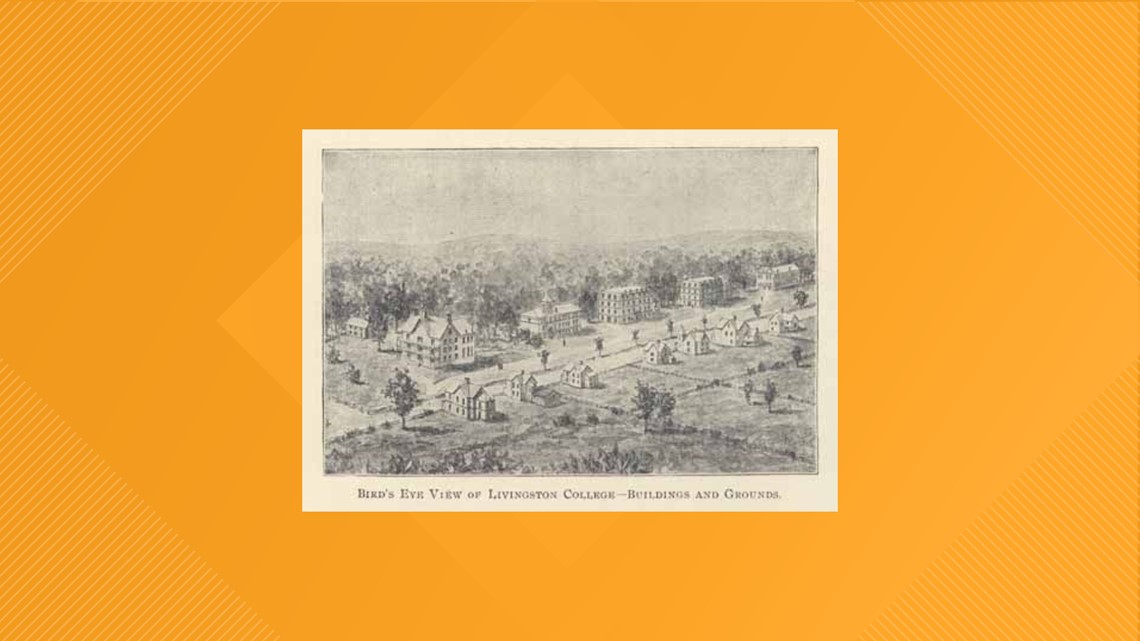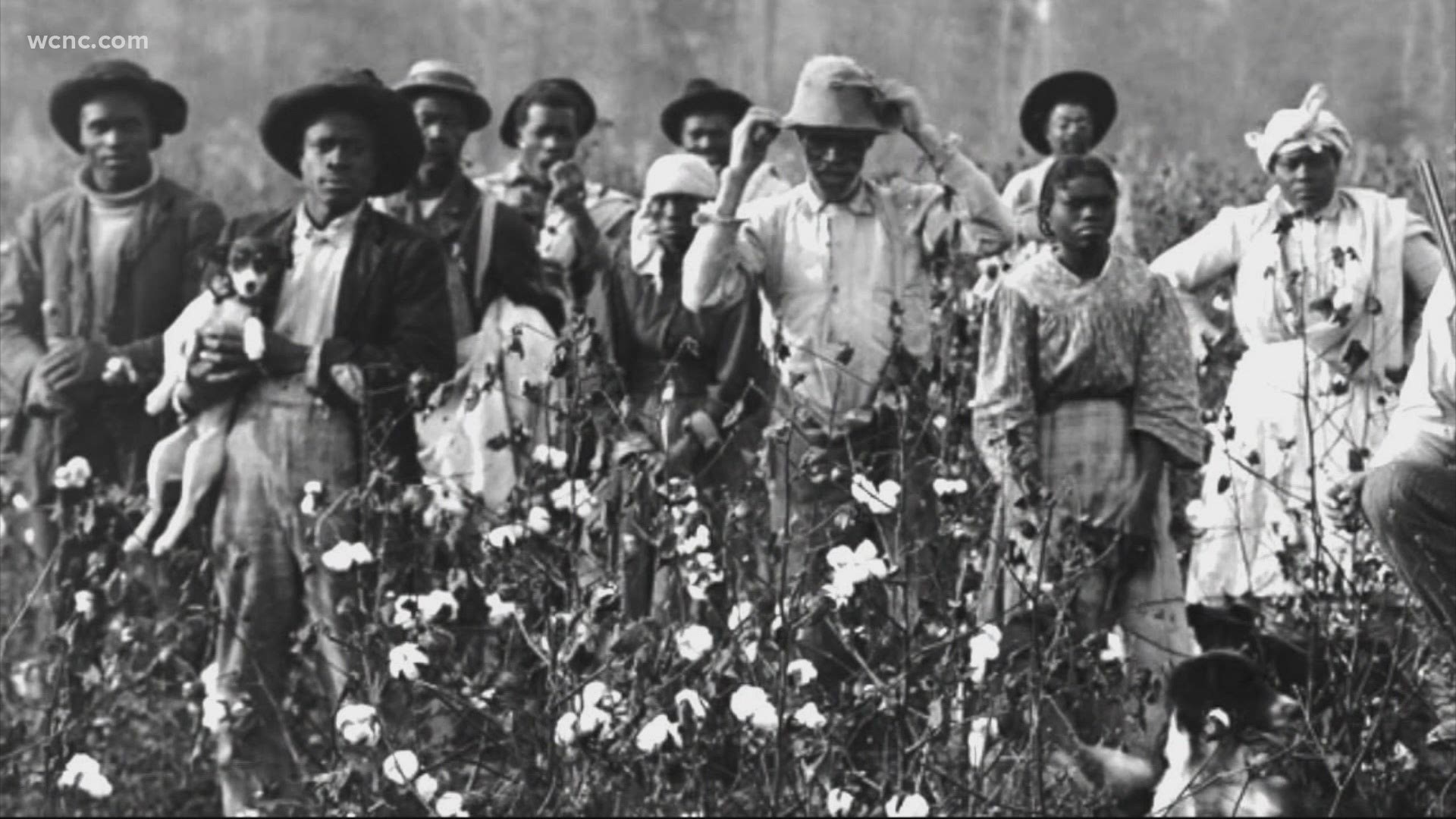CONCORD, N.C. — On Jan. 1, 1863, President Abraham Lincoln signed the Emancipation Proclamation which declared all slaves to be freed.
This was a long, overdue moment for Black families. For decades Black people were held against their will and forced to work for nothing as white people earned a living off their backs.
Not only were slaves help captive physically, but they were also held captive mentally too.
On the plantation, slaves were not allowed to learn how to read or write, some secretly taught themselves and others but that came with a lot of risks. If caught education themselves, slaves would endure savage beatings, hit with whips until they bled. In some cases, their fingers and toes would be cut off as the master wanted to prove a point to other slaves.
In 1879, 16 years after slavery was abolished, ministers with the African Methodist Episcopal (AME) Zion Church opened a Black-owned and operated institution. Originally the school was called Zion Wesley Institute, it became the first institution of its kind, founded, and operated by African‑Americans for the purpose of educating freed slaves.
According to the school’s history, the school was directed by principals Bishop C.R. Harris and Professor A.S. Richardson but ultimately closed in Concord.


In 1881, Dr. Joseph Charles Price and Bishop J.W. Hood became fundraisers with the mission to re-establish Zion Wesley Institute. Price went to England to re-establish and secure the Institute.
The town of Salisbury donated $1,000 and an invitation to relocate the school to Salisbury. The trustees accepted both offers and the College reopened in the Delta Grove area of Salisbury in 1882 with Dr. Price as president. It was the first college established in Salisbury. It was also the first religious ran college in the area to open without gender or age restrictions. Nearby schools Barba Scotia was an all-girls school and Biddle College (Johnson C. Smith University) was strictly for men.
In 1887 the name of the college was changed to Livingstone College in honor of David Livingstone, a popular Christian missionary, philanthropist, and explorer of Africa.
Livingstone College also owned an elementary and high school attached to it, as the founders of the college wanted to ensure students learned basic education before attending college.
However, opening a school for Black people in the south took a lot of courage.
The Civil War had recently ended, and the south lost the fight to keep Black people enslaved.
WCNC Charlotte’s learned more about Livingstone’s rich history from Dr. State Alexander, executive assistant to the current President Jimmy Jenkins.
“Imagine how freighting it must’ve been for the noise of war to not be removed from their memory that things were so much in chaos and were so poor that future was uncertain,” said Dr. Alexander. “it had to be a freighting experience, just having the courage to want to go somewhere else and move away from what they knew, not really having any money to speak of, a lot of people were sharecroppers too.”
In 1892 Livingstone made history again, hosting the first-ever Black college football game in the entire country.
Their opponent Johnson C. Smith University, which was known as Biddle Institute.
“The students got involved with making jerseys,” Dr. Alexander said. “Nike wasn’t around at the time so there were no athletic shoes so they put spikes in their own dress shoes and it was a snowy day.”


Johnson C. Smith is on record of winning the game, a victory DR. Alexander said remains unclear after some questionable plays, but the friendly rivalry continues up to this day.
“We like to think this was the granddaddy of all college football games,” said Dr. Alexander. “ Had it not been for this one game in December 1892, Black college football would not exist. That was a tremendously important historic moment for not only for these two institutions but for Black colleges across the country. “
At a time when Historically Black Colleges and Universities face funding and operational challenges, Livingstone has remained opened for more than 140 years. Today more than 1,100 students from diverse backgrounds attend the college. 23 majors are offered on campus including a notable criminal justice and science program.
“We have students who are now working as firefighters with Salisbury Fire Department and working with the police department,” said Dr. Alexander.
Once deemed the “Harvard of the South” by Frederick Douglas, the father of the Civil Rights Movement, Livingstone continues to live up to its prestigious legacy.
“It’s because of that foundational support and that support we’ve gotten from the community is the reason we’ve been able to survive and thrive,” he said.

